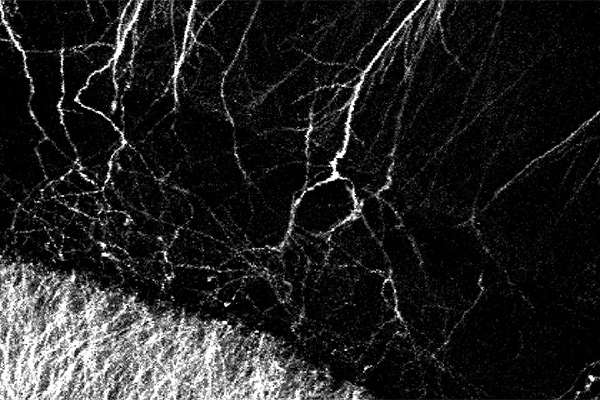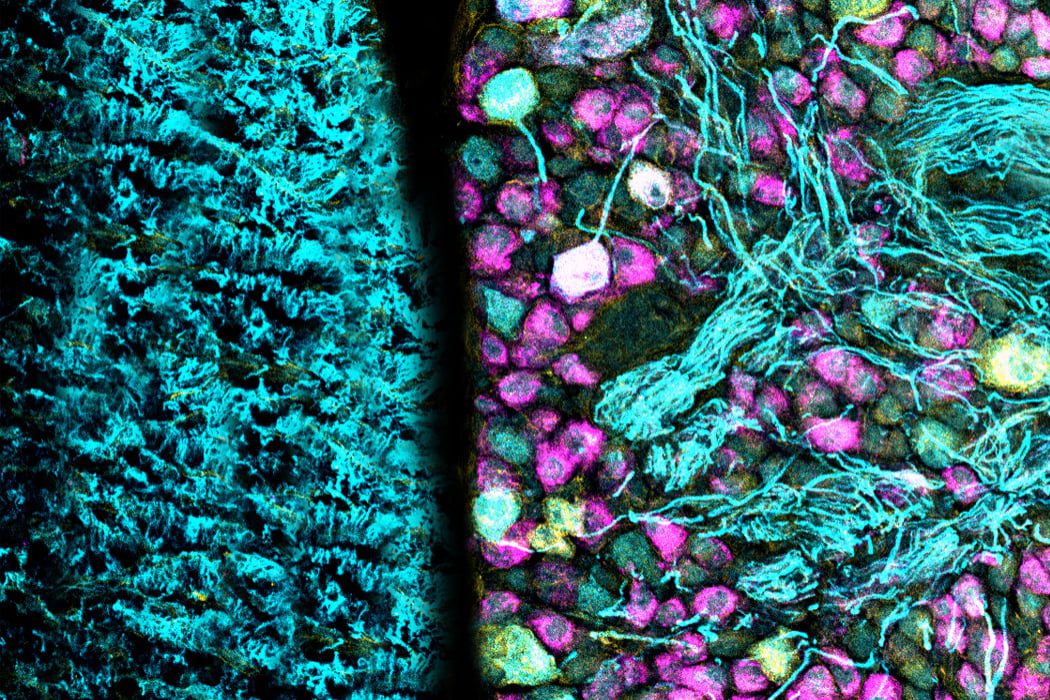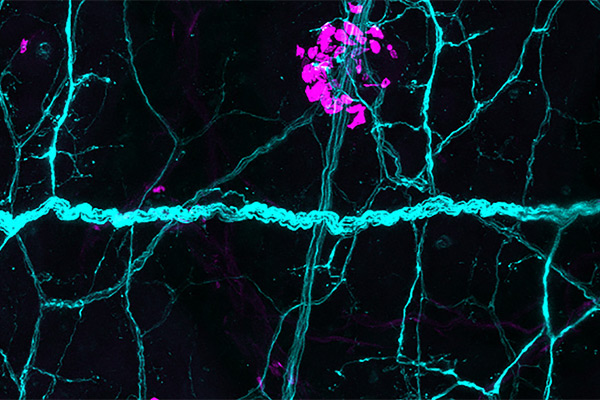About Our Research
The Autism Spectrum Program of Excellence (ASPE) was established by the Perelman School of Medicine at the University of Pennsylvania in 2017 via philanthropic support to significantly improve the understanding of the genetic causes of autism. In its first five years, the ASPE team has recruited a world-class team of 50 clinicians, scientists, and trainees with a common goal: to address gaps in translational and clinical research for adults with autism. The ASPE team has assembled a unique, rich cohort of research participants with genomic and quantitative phenotypic information.
Working collaboratively across 11 labs from multiple disciplines – genetics, psychiatry, neuroscience, bioinformatics, statistics, and cell and developmental biology – the ASPE team has built a powerful translational research infrastructure across multiple model systems, including C. elegans, Drosophila, Zebrafish, Mice, and human induced pluripotent stem cells. Leveraging the strength of each model systems, ASPE is able to comprehensively study the biological causal path of autism-relevant behavioral traits by assessing the phenotypic impact of genetic variants identified in the ASPE cohort across all biological levels – molecular, cellular, neuronal microcircuit, neuronal networks, and behavior. Importantly, this is leading to the identification of therapies and biomarkers that interplay with this causal path.
The integration of ASPE’s unique data set and translational pipeline sets the stage for the discovery of new treatment avenues for adults on the autism spectrum in the coming years. Building on its accomplishments to date and with ASPE’s recent renewal of philanthropic support in 2022 at nearly three times that of the prior gift in 2017, ASPE’s vision over the next 5 years is to increase human recruitment, expand the number of genetic variants studied in model systems (especially gene-gene interaction models), increase the number of compounds screened across model systems for behavioral/phenotypic rectification, and develop a clinical research program with cutting-edge treatments and supports for the autism community.
ASPE is an example of a genetically-based, interdisciplinary program that is successfully translating genetic findings into clinical practice and furthering our understanding of the biological underpinnings of autism.




